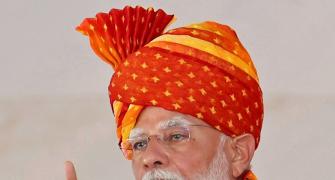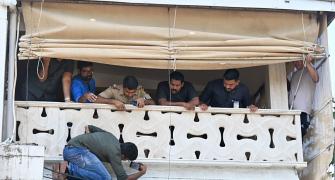With private players gaining easy accessibility to satellite data, the Space Commission is working on a comprehensive legal document on issues related to outer space to ensure that internal security is not endangered, a top official said on Wednesday.
"Remote sensing satellites are focusing on all important installations and a number of agencies like Google Earth are buying such data and placing it in the public domain, which can be a potential danger to internal security," said G Madhavan Nair, chairman of the Indian Space Research Organisation and Space Commission.
Nair said: "We are talking to Google Earth to see how this can be tackled and whether sensitive areas can be blacked out."
There is also a need for a strong legal luminary who can think about problems relating to outer space, he said, while delivering an address on legal issues related to space at the Indian Law Institute in Bangalore.
Another key issue related to space is debris, which can be a potential disaster. "We have 8,000 such objects in various altitudes in space which need to be handled," he said.
Nair said the Space Commission has made certain recommendations like neutralising some components as soon as a satellite is launched and shifting satellites that have completed their service life to a graveyard orbit. Geo-stationary satellites will be kicked out of the geo-stationary orbit as soon as the launch is over, he said.
Weaponisation is another critical issue that needs to be addressed.
"It is accepted that outer space has to be used for peaceful purposes and one has to respect this as the base line. In case there is an infringement, we need to see how it can be tackled," Nair said.
Describing to the Moon Treaty -- according to which the moon is the province of all mankind -- as the 'most controversial treaty,' he said: "It is has been acknowledged by 11 countries, including India but only five have signed it."
The number of 'very limited' locations for geo-stationary orbits used for communication purposes is also an issue under debate, Nair said.
ISRO's National Disaster Support System, he said, would be ready next year. "Clouds have been a major constraint. However, we are now developing a radar, which can penetrate the clouds and the system will be ready next year."
Detailing the use of satellites for education and telemedicine, he said village resource centres have now been established to facilitate this. ISRO is also working on a Rs two-crore proposal with the Central Forensic Science Laboratory in Delhi for using satellites in forensic examinations, he said.








